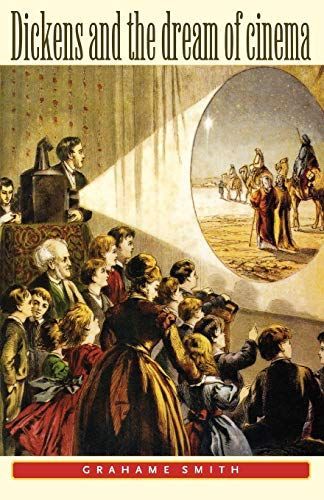
Dickens and the Dream of Cinema
Taking his cue from Walter Benjamin's concept of each epoch dreaming the epoch that is to follow, Grahame Smith argues that Dickens' novels can be regarded as proto-filmic in the detail of their language as well as their larger formal structures. This possibility arises from Dickens' creative engagement with the city as metropolis, as it emerges in the London of the 1830s, plus his immersion in the visual entertainments of his day, such as the panorama, as well as technological advances such as the railway which anticipates cinema in some of its major features. The book offers a new way of reading Dickens, through the perspective of a form which he knew nothing of, while simultaneously suggesting an account of his part in the manifold forces that led to the appearance of film towards the end of the 19th century.